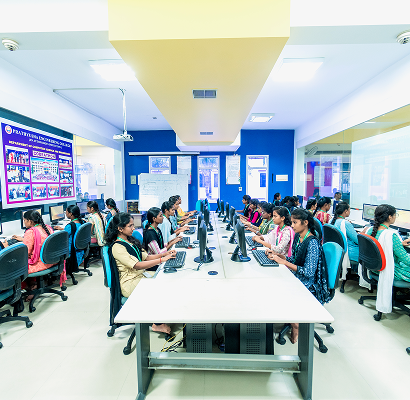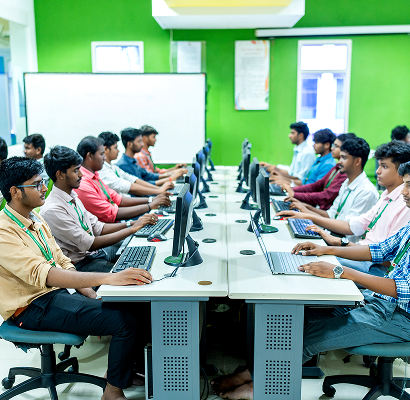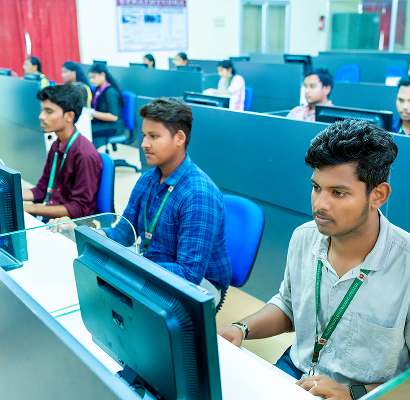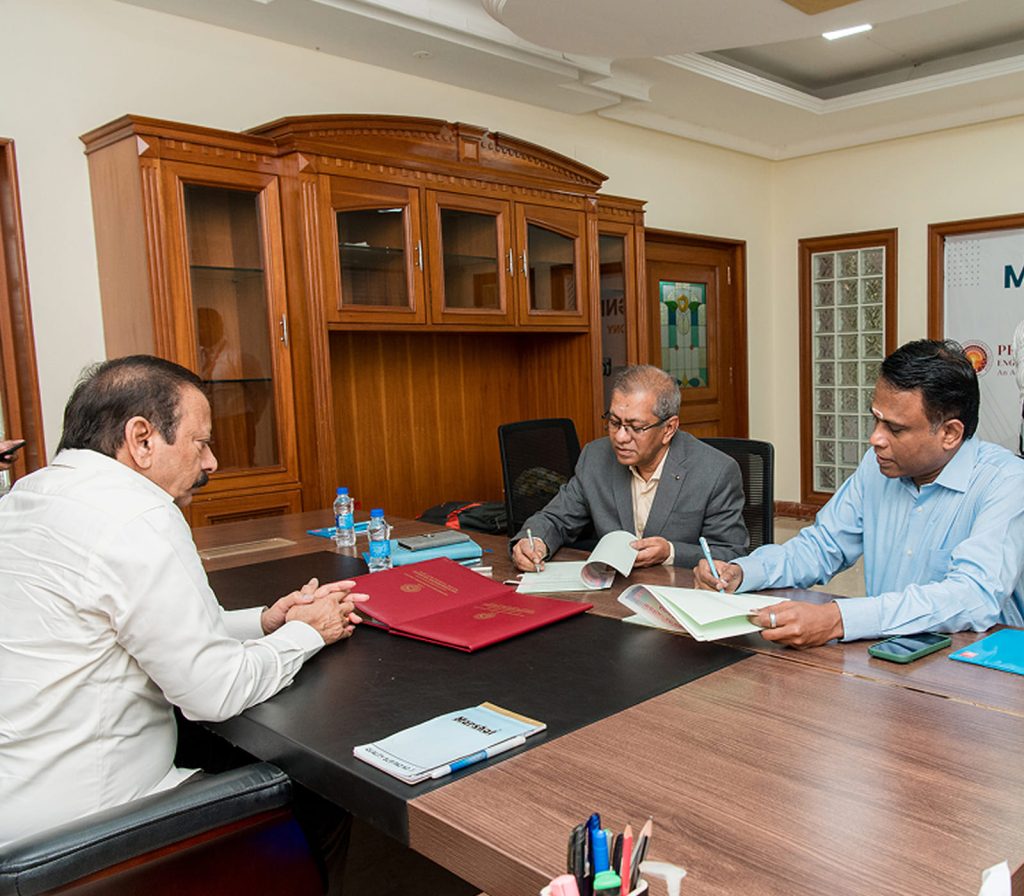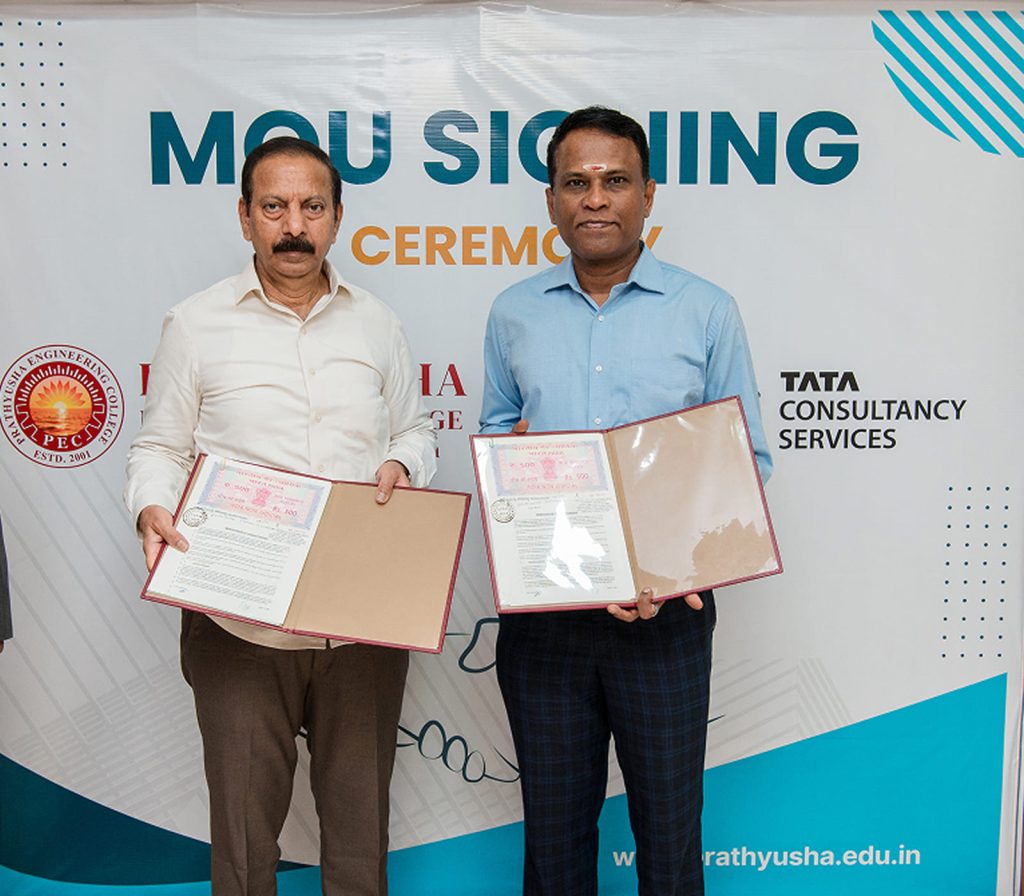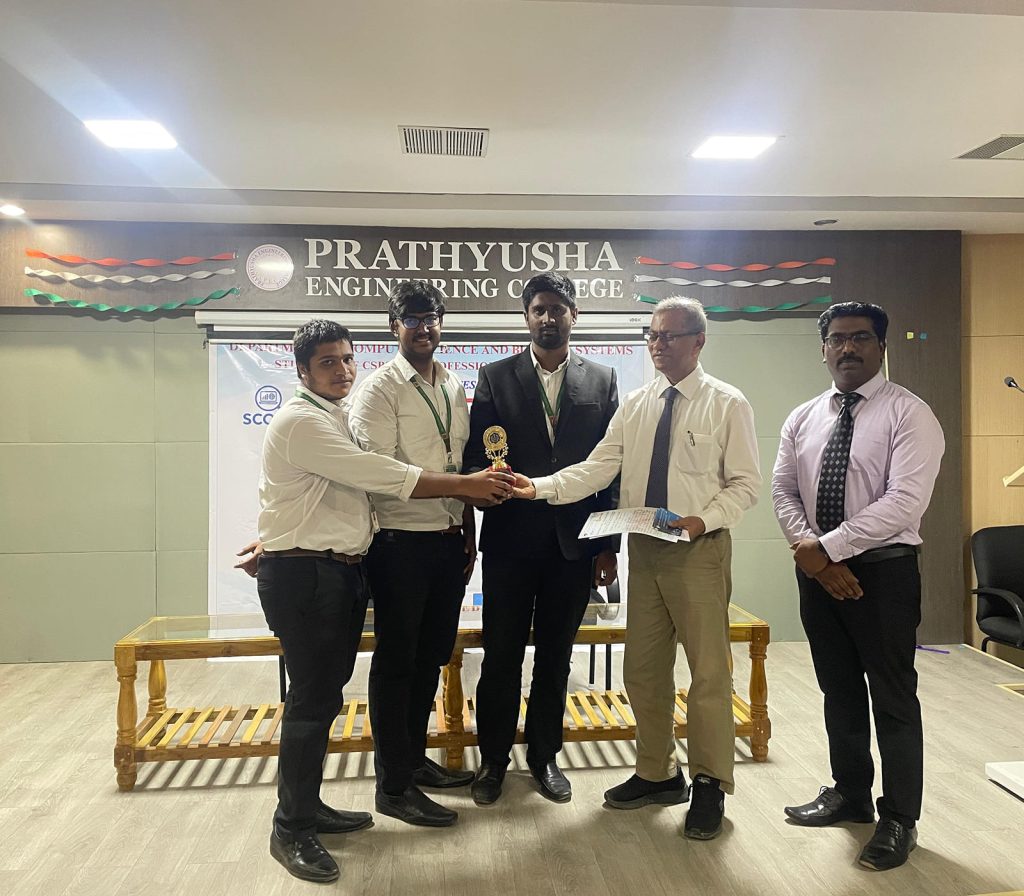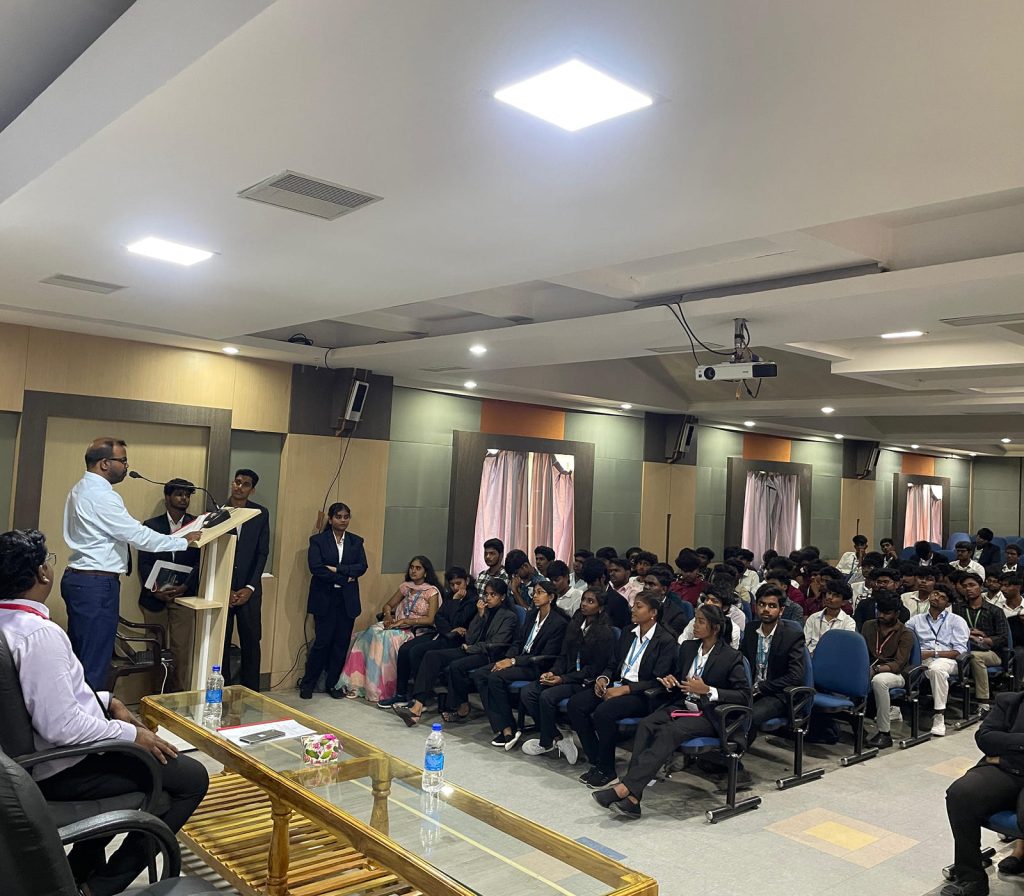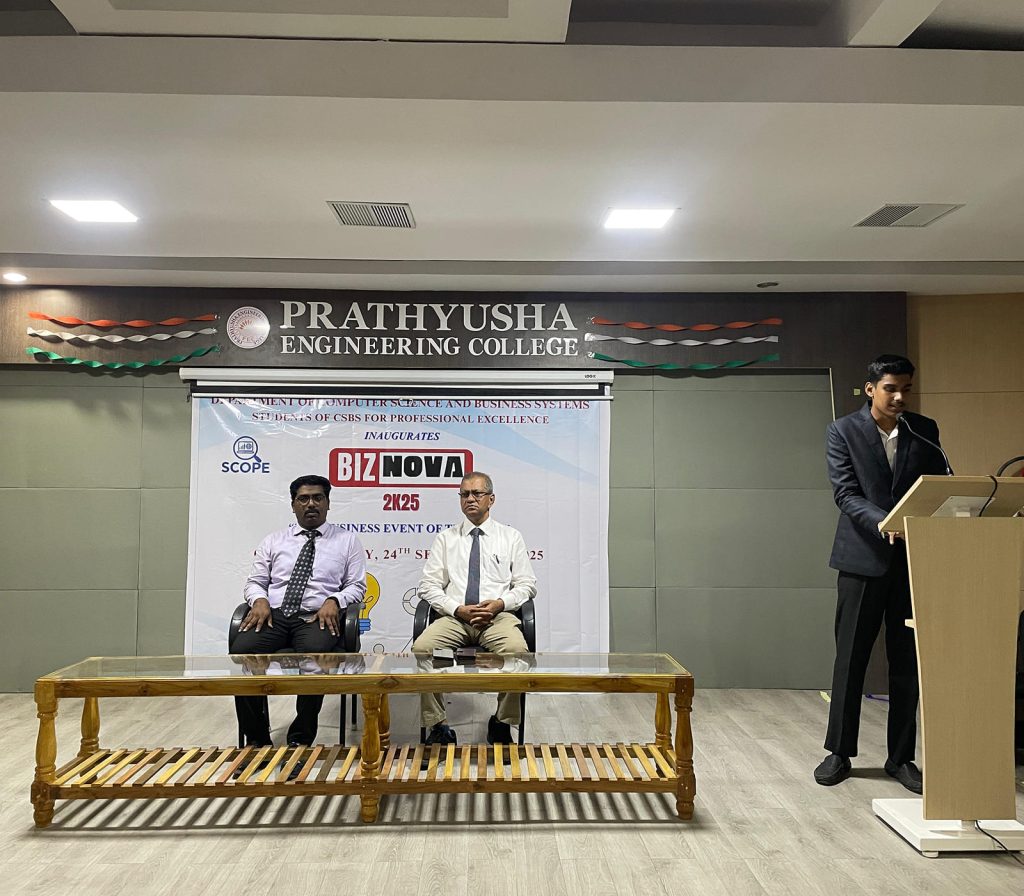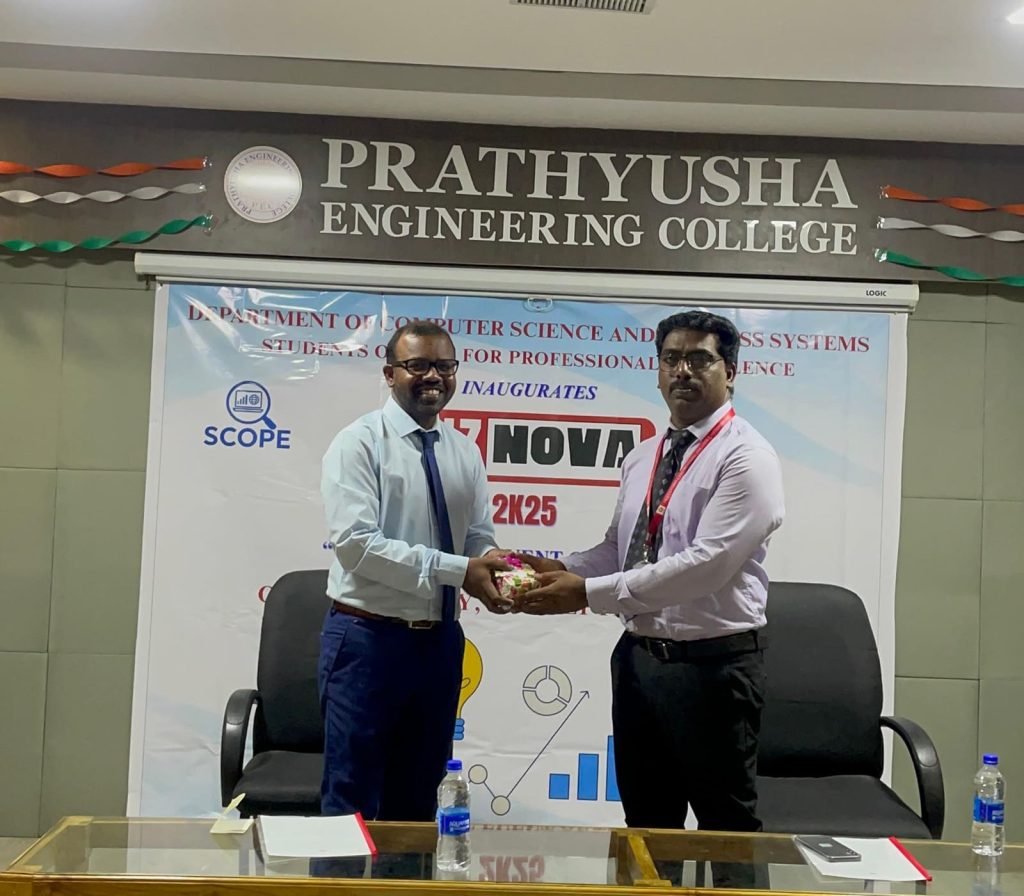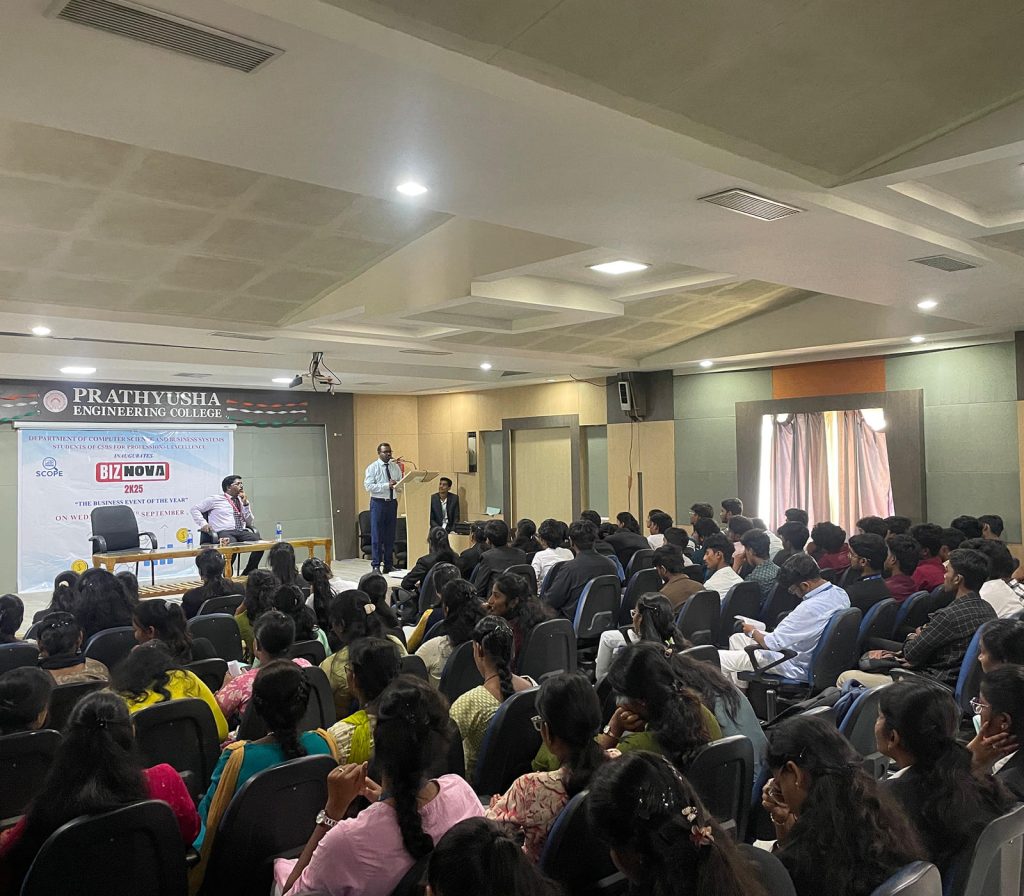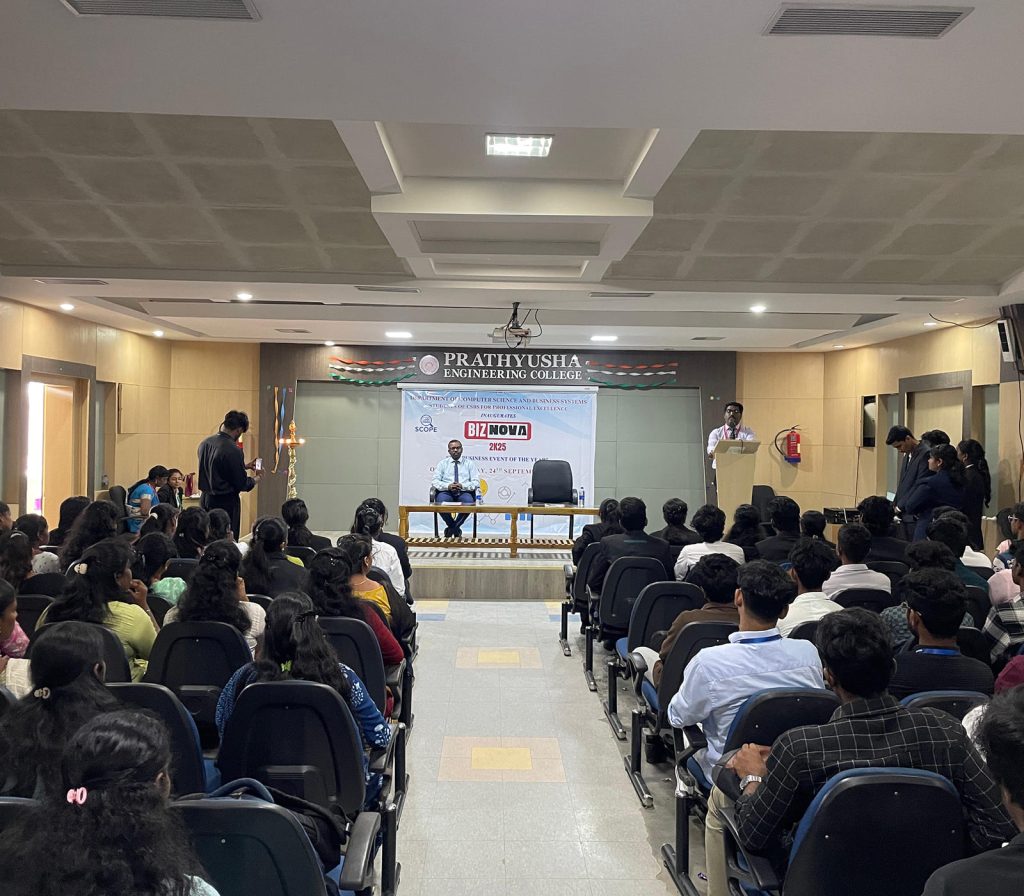- Result : 2024-2025 Percentage : 77.46%
- Result : 2023-2024 Percentage : 85.45%
- Result : 2023-2024 Percentage : 87.50%
- Result : 2024-2025 Percentage : 77.46%
- Result : 2023-2024 Percentage : 85.45%
- Result : 2023-2024 Percentage : 87.50%
About The Department
The B.Tech in Computer Science and Business Systems (CSBS) is a cutting-edge, innovative four-year undergraduate program designed by Tata Consultancy Services (TCS), one of India’s leading IT services and consulting companies. This forward-looking course aims to address the growing demand for engineering talent with a blend of technical and business skills.
The CSBS program offers a comprehensive curriculum that includes core topics in computer science, such as Algorithms, Data Structures, Artificial Intelligence, and Software Engineering. In addition to technical subjects, the course places significant emphasis on humanities, human values, and business disciplines. This dual approach ensures that graduates not only possess strong technical expertise but also have a solid understanding of business principles and ethical considerations.
By integrating these diverse areas of study, the CSBS program aims to produce well-rounded professionals who are equipped to tackle complex challenges in the technical industry. Graduates of this program are expected to excel in various roles, ranging from software development and data analysis to business consulting and project management.
Vision & Mission
Vision
- The Computer Science and Business Systems (CSBS) department is to produce well-rounded professionals who are equipped with a robust blend of technical expertise and business acumen. The department aims to achieve this by fostering an innovative and interdisciplinary learning environment that emphasizes both the core principles of computer science and the essential aspects of business management, humanities, and human values.
Mission
- To equip students with the technical skills and business insights required to excel in diverse roles within the technology industry, including software development, data analysis, and business consulting.
- To instil strong ethical values and a sense of social responsibility, preparing students to become leaders who can make positive contributions to society.
- Foster ethical values and social responsibility, developing leaders who positively impact society.
- Promote research and innovation, encouraging continuous improvement and real-world application of computer science and business principle.

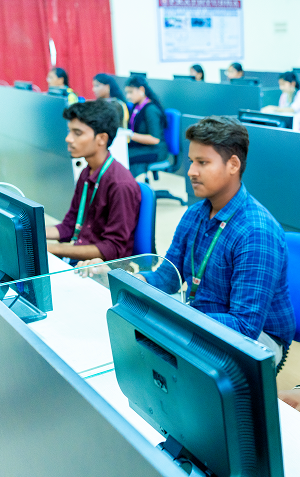
PO,PEO,POS
Programme Outcomes (POs)
- Engineering Knowledge: Apply knowledge of mathematics, natural science, computing, engineering fundamentals and an engineering specialization as specified in WK1 to WK4 respectively to develop to the solution of complex engineering problems.
- Problem Analysis: Identify, formulate, review research literature and analyze complex engineering problems reaching substantiated conclusions with consideration for sustainable development. (WK1 to WK4)
- Design/Development of Solutions: Design creative solutions for complex engineering problems and design/develop systems/components/processes to meet identified needs with consideration for the public health and safety, whole-life cost, net zero carbon, culture, society and environment as required. (WK5)
- Conduct Investigations of Complex Problems: Conduct investigations of complex engineering problems using research-based knowledge including design of experiments, modelling, analysis & interpretation of data to provide valid conclusions. (WK8).
- Engineering Tool Usage: Create, select and apply appropriate techniques, resources and modern engineering & IT tools, including prediction and modelling recognizing their limitations to solve complex engineering problems. (WK2 and WK6)
- The Engineer and The World: Analyze and evaluate societal and environmental aspects while solving complex engineering problems for its impact on sustainability with reference to economy, health, safety, legal framework, culture and environment. (WK1, WK5, and WK7).
- Ethics: Apply ethical principles and commit to professional ethics, human values, diversity and inclusion; adhere to national & international laws. (WK9)
- Individual and Collaborative Team work: Function effectively as an individual, and as a member or leader in diverse/multi-disciplinary teams.
- Communication: Communicate effectively and inclusively within the engineering community and society at large, such as being able to comprehend and write effective reports and design documentation, make effective presentations considering cultural, language, and learning differences
- Project Management and Finance: Apply knowledge and understanding of engineering management principles and economic decision-making and apply these to one’s own work, as a member and leader in a team, and to manage projects and in multidisciplinary environments.
Life-Long Learning: Recognize the need for, and have the preparation and ability for (i) independent and life-long learning (ii) adaptability to new and emerging technologies and (iii) critical thinking in the broadest context of technological change. (WK8).
Programme Educational Objectives (PEOs)
- To enable the graduates to possess a strong foundation in computer science and business systems, enabling them to design and develop software solutions and business applications.
- To enable graduates to exhibit professionalism, ethical behaviour, and an understanding of the societal impact of their work in computer science and business environments
- To equip the graduates to demonstrate leadership qualities and innovative thinking in their professional careers, contributing to the growth and success of their organizations.
Programme Specific Objectives (PSO’s)
- Graduates will be able to apply core concepts of computer science and integrate them with business processes to design and implement software solutions that improve business operations and decision-making.
- Graduates will demonstrate the ability to innovate and develop new business ideas by leveraging technological advancements in areas such as artificial intelligence, data analytics, cloud computing and machine learning.
- Graduates will be proficient in developing, testing, and deploying business-centric software systems that are efficient, scalable, and secure, while also meeting the strategic goals of organizations.
- To Analyze and demonstrate the ability to integrate computer science principles with business practices, effectively applying technical solutions to business problems.
- To use modern software tool for designing, developing, and managing software systems, ensuring they meet business requirements and industry standards.
TCS MOU

Faculty
Dr. Thamba Meshach W
Associate Professor and HOD
Ms. Sripriya N
Assistant Professor
Ms. Aarthi S
Assistant Professor


